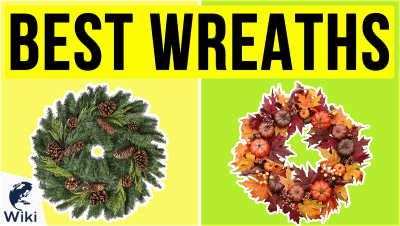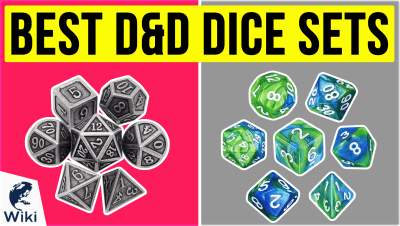6 Fascinating Resources For Lovers Of Language
Language plays a huge role in our everyday lives, from reading street signs to watching TV to talking with our friends. Taking a closer look at linguistics can be helpful for those looking to improve their writing or speaking skills, and it can also provide insight on how humans think and communicate. The resources listed here cover a variety of fascinating topics, from the origins of language to how linguistics applies to visual art to the irregularity of English spelling. This video was made with Ezvid Wikimaker.
Useful Resources For Lovers Of Linguistics
| Name | Description |
|---|---|
| Mark Abley | Writer and editor living in Montreal who frequently addresses language in his work |
| Conscious Style Guide | Website devoted to conscious language that helps writers and editors think critically |
| Visual Language Lab | A project of scholar Neil Cohn that delves into linguistics, illustrations, and cognitive sciences |
| Career Linguist | Blog administered by Dr. Anna Marie Trester, an interactional sociolinguist and storyteller whose research centers around the language of work and career |
| The English Spelling Society | Organization working to raise awareness of the problems and costs arising from the irregularity of English spelling and to highlight the difficulty of mastering the system |
| Shigeru Miyagawa | Linguist and online education specialist who serves as Senior Associate Dean for Open Learning at MIT |
How Language Shapes The Way We Think
Things Every Writer Should Have
- A journal where you can keep track of your thoughts & ideas
- Some coffee or tea to get you through late-night bursts of inspiration
- A comfortable keyboard so you don't end up with carpal-tunnel syndrome
- A laptop that's easy to bring along to your local coffee shop
- A height-adjustable desk to help you avoid hurting your lower back
- A foam roller for when you inevitably hurt your lower back anyway
The Top 10 Languages by Number of Native Speakers
- Chinese
- Spanish
- English
- Hindi
- Arabic
- Bengali
- Portuguese
- Russian
- Japanese
- Lahnda (Western Punjabi)
What We Often Get Wrong About the Brain's Language Centers
In Depth
Some people believe that it is language that most substantially distinguishes humans from other animals. Whether or not you agree, language is a fascinating and complex topic for study. This list, arranged in no particular order, looks at a range of different resources for anyone looking to satisfy their linguistic curiosity.
For #1, we've got Mark Abley, a writer and editor living in Montreal who frequently addresses language in his work. He writes non-fiction, poetry, and journalism, and is the recipient of both a Rhodes Scholarship and a Guggenheim Fellowship. For many years his column on language, "Watchwords," appeared biweekly in the Montreal Gazette.
Abley's books on linguistic subjects include The Prodigal Tongue: Dispatches From the Future of English, which looks at the way that languages are likely to transform and be transformed by their speakers during the twenty-first century. In Spoken Here, Abley explores threatened dialects across the globe. Watch Your Tongue surveys phrases, idioms, and cliches of everyday language.
Watch Your Tongue surveys phrases, idioms, and cliches of everyday language.
#2 is Conscious Style Guide. Describing itself as the first website devoted to conscious language, its mission is to help writers and editors think critically about using language, including words, portrayals, framing, and representation, to empower people instead of limit them. It was founded by Karen Yin, who also created the Editors of Color database.
The guide offers advice on kind, compassionate, mindful, empowering, respectful, and inclusive language, and illuminates key conversations, covering a variety of communities. It was developed by centralizing many of the already existing media guides created by marginalized groups. Rather than mandating one-size-fits-all approaches, it invites users to think critically through usage debates.
At #3, it's Visual Language Lab, a project from Neil Cohn, a scholar of cognition and communication who has an extensive background in drawing and comics. The site makes available Cohn's research, which elaborates a theory that drawing, especially the kind of sequential images found in comic books, is structured like language because they obey similar principles of cognition.
The site makes available Cohn's research, which elaborates a theory that drawing, especially the kind of sequential images found in comic books, is structured like language because they obey similar principles of cognition.
Cohn has developed his argument in books like Early Writings, which collects his first theoretical texts and lays the groundwork for the theory, and The Visual Language of Comics: Introduction to the Structure and Cognition of Sequential Images, which attempts to found a new line of research within the linguistic and cognitive sciences.
Coming in at #4, Career Linguist is a blog administered by Dr. Anna Marie Trester, an interactional sociolinguist and storyteller whose research and practical interests center around the language of work and career. She uses the tools of her discipline to investigate professional self-presentation, especially stories, and the way that people think about their work.
Trester's book Bringing Linguistics to Work is a guide for linguists of all backgrounds looking to explore careers beyond academia. In addition to Trester's own writing, the blog features posts by guest bloggers, drawing from a community that includes students, professionals, and their support networks. It also hosts a variety of services for job seekers, like a career camp, job listings, and networking opportunities.
In addition to Trester's own writing, the blog features posts by guest bloggers, drawing from a community that includes students, professionals, and their support networks.
For #5, we've got The English Spelling Society. Initiated in 1908 by philanthropists and educational reformers, it now has a worldwide membership made up of people from Anglophone countries. Its object is to raise awareness of the problems and costs arising from the irregularity of English spelling and to highlight the difficulty of mastering the system. It promotes proposed remedies to improve literacy, including possible orthographic reform.
Over the century since its founding the Society and its members have produced numerous publications in the form of books, pamphlets, and journals. It seeks to bring spelling issues to the attention of the media and the wider public through press notices, radio interviews, and other means. It has also organized a number of conferences, including a major centenary celebration held at Coventry University in 2008.
Wrapping up our list at #6, Shigeru Miyagawa is a linguist and online education specialist who serves as Senior Associate Dean for Open Learning at MIT. Along with Pulitzer Prize-winning historian John W. Dower, he is co-director of the Visualizing Cultures initiative. He is also producer of the multimedia program, Star Festival, in which he is portrayed by actor and internet personality George Takei.
Along with Pulitzer Prize-winning historian John W. Dower, he is co-director of the Visualizing Cultures initiative.
As a professor of linguistics, he has published more than sixty articles, and several books, including Agreement Beyond Phi, a work on formal syntax. He has recently developed a theory of language evolution that hypothesizes that human language arose from the integration of two pre-existing systems in nature, one seen in birdsong, the other in primate alarm calls.















